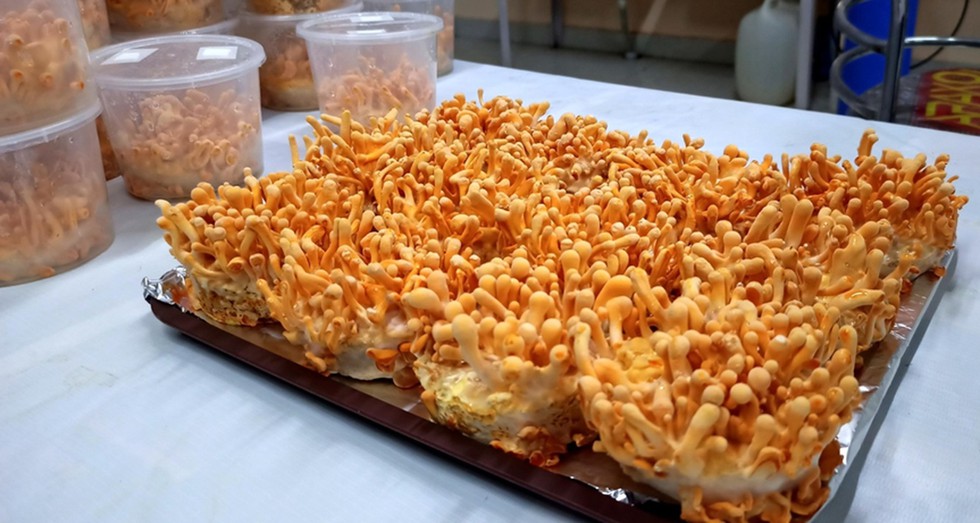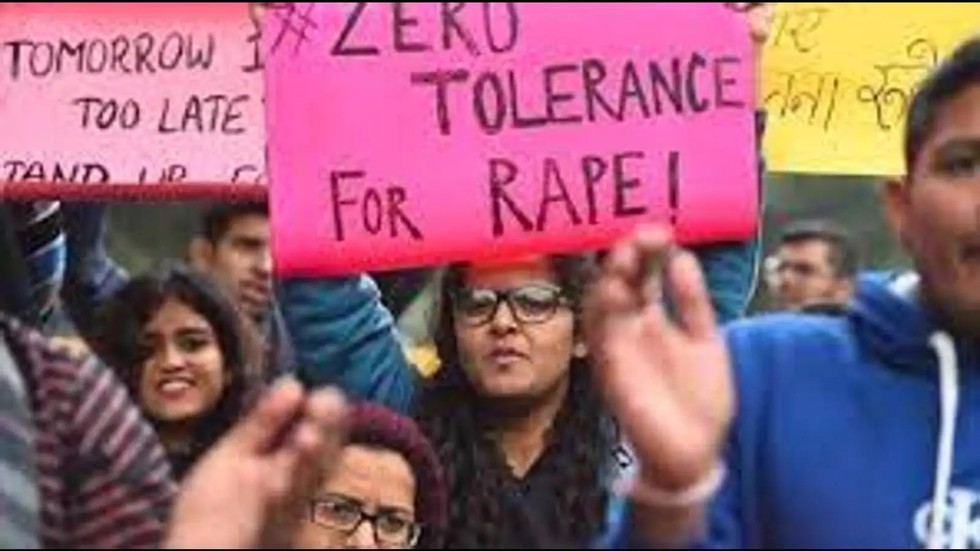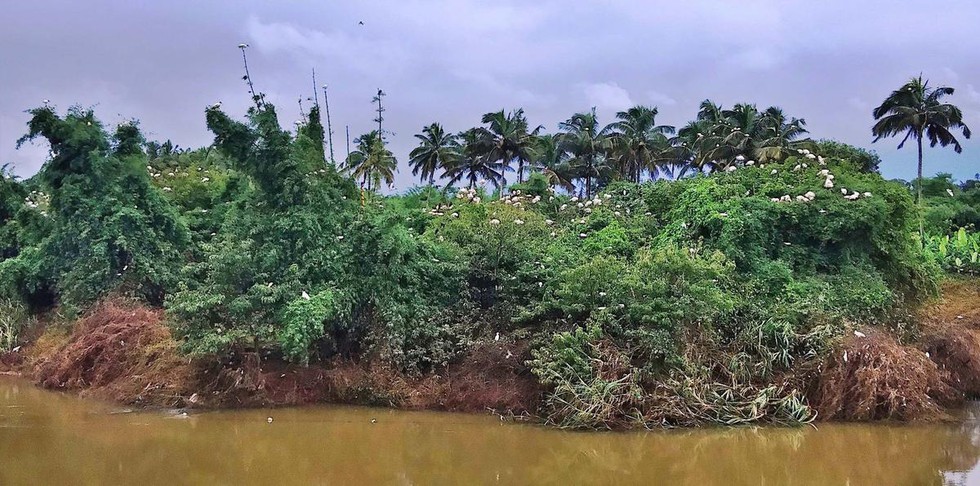
About:
- According to the Juvenile Justice (Care and Protection of Children) Act, 2015, there should be at least one officer, not below the rank of an Assistant Sub-Inspector, as CWPO in every station.
- National Commission for Protection of Child Rights had requested that a Special Juvenile Police Unit in each district and city, which is headed by an officer not below the rank of a Deputy Superintendent of Police, be established.
- The unit would comprise CWPOs and two social workers having experience of working in the field of child welfare, of whom one shall be a woman, to co-ordinate all functions of police in relation to children.
- The contact particulars of the CWPOs should be displayed in all police stations for the public to contact.
2. Cordy gold nanoparticles (Cor-AuNPs)

About:
- Cordy gold nanoparticles (Cor-AuNPs) is the outcome of a collaborative experiment by scientists from four Indian institutions, has earned an international patent from Germany.
- These nanoparticles, derived from the synthesis of the extracts of Cordyceps militaris and gold salts, could make drug delivery in the human body faster and surer.
- Cordyceps militarisis a high value parasitic fungus, lab-grown at the Department of Biotechnology’s Technology Incubation Centre (TIC) in Bodoland University, one of the collaborators of the patented research work.
- Gold salts are ionic chemical compounds of gold generally used in medicine.
- Wild Cordyceps mushroom is found in the eastern Himalayan belt.
Penetration:
- Penetration in the cells is more when the drug particles are smaller.
- Cordyceps militaris, called super mushroom because of its tremendous medicinal properties, adds bioactive components to the synthesis of gold nanoparticles for better penetration.
3. Mauna Loa

About:
- Mauna Loa is one of five volcanoes that together make up the Big Island of Hawaii, which is the southernmost island in the Hawaiian archipelago.
- It’s not the tallest (that title goes to Mauna Kea) but it’s the largest and makes up about half of the island’s land mass.
- It sits immediately north of Kilauea volcano, which is currently erupting from its summit crater.
- Kilauea is well-known for a 2018 eruption that destroyed 700 homes and sent rivers of lava spreading across farms and into the ocean.
- Mauna Loa last erupted 38 years ago.
- In written history, dating to 1843, it’s erupted 33 times.
4. Unified District Information System for Education Plus (UDISE) 2021-22

About:
- According to the report, Gross Enrollment Ratio (GER) has improved at primary, upper primary, and higher secondary levels of school education in 2021-22 as compared to 2020-21.
- GER in higher secondary has made a significant improvement from 53.8 percent in 2021-21 to 57.6 percent in 2021-22.
- In 2021-22, the Pupil Teacher Ratio (PTR) stood at 26 for primary, 19 for upper primary, 18 for secondary, and 27 for higher secondary showing an improvement since 2018-19.
- In 2021-22, over 12.29 crore girls are enrolled in primary to higher secondary showing an increase of 8.19 lakh as compared to the enrolment of girls in 2020-21.
- More than 20,000 schools were closed across the country during 2020-21 while the number of teachers also declined by 1.95% in comparison to the previous year.
- It pointed out that only 44.85% schools had computer facilities while nearly 34% had internet connection.
- While only 27% schools have special toilets for children with special needs (CSWN), more than 49% of them have ramps with handrails
Unified District Information System for Education Plus (UDISE):
- The UDISE+ system of online data collection from the schools was developed by Department of School Education & Literacy in the year 2018-19 to overcome the issues related to erstwhile practice of manual data filling in paper format.
- In UDISE+ system, improvements have been made particularly in the areas related to data capture, data mapping and data verification.
- In UDISE+ 2021-22, additional data on important indicators viz., digital library, peer learning, hard spot identification, number of books available in school library, etc have been collected for the first time to align with the National Education Policy 2020 initiatives.
5. Performance Grading Index (PGI) for 2020-21

About:
- It is a unique index for evidence-based comprehensive analysis of school education systems across States and UTs.
- The prime objective of PGI is to promote evidence-based policy-making and highlight course correction to ensure quality education for all.
- As per the index, a total of seven States and Union Territories namely Kerala, Punjab, Chandigarh, Maharashtra, Gujarat, Rajasthan, and Andhra Pradesh have attained Level -2 grading in 2020-21.
- Gujarat, Rajasthan, and Andhra Pradesh are the new entrants with the highest achieved level.
- Union Territory Ladakh has made significant improvements in PGI from Level 8 to Level 4 in 2020-21.
- No state, however, has been able to attain the highest level of L1 so far.
Grading:
- PGI 2020-21 classified the States and UTs into ten grades of which the highest achievable Grade is Level 1 for the states scoring more than 950 points out of a total of 1000 points.
- The lowest grade is Level 10 which is for a score below 551.
- The PGI structure comprises 1000 points across 70 indicators grouped into 2 categories viz.,
- Outcomes,
- Governance Management (GM).
- These categories are further divided into 5 domains, viz.,
- Learning Outcomes (LO),
- Access (A),
- Infrastructure and Facilities (IF),
- Equity (E) and
- Governance Process (GP).
6. Two-finger Test

About:
- A woman who has been sexually assaulted undergoes a medical examination for ascertaining her health and medical needs, collection of evidence, etc.
- The two-finger test, carried out by a medical practitioner, involves the examination of her vagina to check if she is habituated to sexual intercourse. The practice is unscientific and does not provide any definite information. Moreover, such ‘information’ has no bearing on an allegation of rape.
- A handbook released by the World Health Organization (WHO) on dealing with sexual assault victims says, “There is no place for virginity (or ‘two-finger’) testing; it has no scientific validity”.
The Supreme Court Observations:
- In 2004 SC observed that whether a woman is ‘habituated to sexual intercourse’ or ‘habitual to sexual intercourse’ is irrelevant for the purposes of determining whether the ingredients of Section 375 (rape) of the IPC are present in a particular case.
- In 2013, the SC court had held that the two-finger test violates a woman’s right to privacy and asked the government to provide better medical procedures to confirm sexual assault.
- Invoking the International Covenant on Economic, Social, and Cultural Rights 1966 and the UN Declaration of Basic Principles of Justice for Victims of Crime and Abuse of Power 1985, the apex court said rape survivors are entitled to legal recourse that does not re-traumatise them or violate their physical or mental integrity and dignity.
7. Senna spectabilis

About:
- Senna spectabilis is an invasive species.
- It is introduced as an ornamental species and for use as firewood from South and Central America.
- The species has become highly invasive in the Sigur plateau in both the core and buffer zones of the MTR.
- Senna spectabilis, along with Lantana camara, is among five major invasive weeds that had taken over vast swathes of the Nilgiris.
- Eucalyptus and pine, though exotic, do not spread as quickly as the other species and are considered easier to manage.
Mudumalai Tiger Reserve:
- Mudumalai Tiger Reserve is located in the Nilgiris District of Tamil Nadu.
- It is at the tri-junction of three states, viz, Karnataka, Kerala and Tamil Nadu and it plays an unique role by forming part of the Nilgiris Biosphere Reserve, the first Biosphere Reserve in India, declared during 1986.
- It has a common boundary with Wyanad Wildlife Sanctuary (Kerala) on the West, Bandipur Tiger Reserve (Karnataka) on the North, and the Nilgiris North Division on the South and East and Gudalur Forest Division on the South West, together forming a large conservation landscape for flagship species such as Tiger and Asian Elephant.
8. Disqualification of Convicted Legislators from Assembly

About:
- Section 8 of the Representation of the People Act (RPA), 1951, contains provisions aimed at decriminalising electoral politics.
- There are two categories of criminal cases that attract disqualification upon conviction.
- In the first category are offences that entail disqualification for a period of six years upon any conviction.
- If the punishment is a fine, the six-year period will run from the date of conviction, but if there is a prison sentence, the disqualification will begin on the date of conviction, and will continue up to the completion of six years after the date of release from jail.
- Major IPC offences are included under this head:
- making speeches that cause enmity between groups (Sec.153A) and doing so in a place of worship (Sec.505), bribery and personation during elections and other electoral offences, offences relating to rape and cruelty to women by husband and latter’s relatives.
- Besides, serious provisions of special laws such as the Protection of Civil Rights Act, Customs Act, Unlawful Activities (Prevention) Act etc are among the category of offences that entail disqualification regardless of the quantum of punishment.
- Laws for prevention of Sati, corruption, terrorism and insult to national flag and national anthem etc are also part of this group.
- All other criminal provisions form a separate category under which mere conviction will not entail disqualification. A sentence of at least two years in prison is needed to incur such disqualification.
Legal protection:
- Under Section 8(4) of the RPA, legislators could avoid immediate disqualification until 2013.
- The provision said that with respect to a Member of Parliament or a State legislator the disqualification will not take effect for three months.
- If within that period, the convicted legislator files an appeal or revision application, it will not take effect until the disposal of the appeal or application.
- In Lily Thomas vs. Union of India, the Supreme Court struck down clause (4) as unconstitutional, thus removing the protection enjoyed by lawmakers.
Can the disqualification be removed?
- The Supreme Court has the power to stay not only the sentence, but also the conviction of a person.
- In some rare cases, conviction has been stayed to enable the appellant to contest an election. However, the SC has made it clear that such a stay should be very rare and for special reasons.
- The RPA itself provides a remedy through the Election Commission.
- Under 11 of the Act, the EC may record reasons and either remove, or reduce the period of, a person’s disqualification.
- The EC exercised this power for Sikkim Chief Minister P.S. Tamang, who served a one-year sentence for corruption, and reduced his disqualification so as to contest a byelection and remain in office.
9. The International Day for Biosphere Reserves

About:
Biosphere Reserves:
- Biosphere Reserve (BR) is an international designation by UNESCO for representative parts of natural and cultural landscapes extending over large area of terrestrial or coastal/marine ecosystems or a combination thereof.
- They are sites for testing interdisciplinary approaches to understanding and managing changes and interactions between social and ecological systems, including conflict prevention and management of biodiversity.
- Biosphere reserves are nominated by national governments and remain under the sovereign jurisdiction of the states where they are located.
World Network of Biosphere Reserves:
- The World Network of Biosphere Reserves (WNBR) was formed in 1971, as a backbone for biodiversity conservation, ecosystem restoration, and living in harmony with nature.
- The World Network of Biosphere Reserves of the MAB Programme consists of a dynamic and interactive network of sites of excellence.
- The World Network of Biosphere Reserves promotes North-South and South-South collaboration and represents a unique tool for international co-operation through sharing knowledge, exchanging experiences, building capacity and promoting best practices.
- There are now 738 properties in 134 countries, including 12 in India, four in Sri Lanka, and three in the Maldives.
South Asia:
- In South Asia, over 30 biosphere reserves have been established.
- The first one was the Hurulu Biosphere Reserve, in Sri Lanka, with 25,500 hectares of tropical dry evergreen forest.
- In India, the first biosphere reserve was designated by UNESCO in 2000, namely, the blue mountains of the Nilgiris stretching over Tamil Nadu, Karnataka and Kerala.
10. Panamaram Heronry

About:
- Panamaram heronry is the largest breeding ground of different species of herons in the Malabar region.
- The heronry, formed on a sandbank on the Panamaram River, is a breeding ground for nine species of waterbirds.
- The tiny islet is a haven for globally threatened waterfowls, including the black headed-ibis, purple heron, large egret, median egret, little egret, pond heron, night heron, and little cormorant.
- The site is also the only location in State where the cattle egret breeds.





























































































































































.png)
.png)
.png)
.png)
.png)


.png)
.png)
.png)





.png)
.png)






.png)
.png)
.png)
.png)
.png)
.png)
.png)
.png)
.png)

.png)







.png)
.png)


.png)
.png)
.png)


.png)

.png)
.png)





.jpg)

.png)
.png)


.png)

.png)
.png)
.png)

.jpg)

.jpg)


.png)

.png)
.png)
.png)
.png)
.png)
.png)
.png)
.png)
.png)
.png)




.png)

.png)





.png)
.png)
.png)
.png)
.png)
.png)
.png)
.png)
.png)
.png)
.jpg)
.jpg)

.png)
.png)
.png)
.png)
.png)
.png)
.png)
.png)
.png)
.png)
.png)
.png)
.png)
.png)
.png)
.png)
.png)
.png)
.png)
.png)
.png)
.png)



.png)
.png)

.jpg)
.jpg)


.jpg)
.jpg)
.jpg)
.jpg)
.jpg)

.jpg)








.jpg)
.jpg)
.jpg)
.jpg)
.jpg)

















.jpg)
.jpg)







.jpg)


















.jpg)
.jpg)



























































































.jpg)
.jpg)


























.jpg)

.jpg)










.jpg)








.jpg)




.jpg)










.jpg)


















.jpg)












































.jpg)














.jpg)
.jpg)
.jpg)





.jpg)

.jpg)
.jpg)





































































.jpg)


































.jpg)
.jpg)
















































.jpg)












.jpg)


.jpg)




.jpg)
.jpg)
.jpg)

.jpg)
.jpg)
.jpg)
.jpg)

.jpg)
.jpg)
.jpg)

.jpg)
.jpg)
.jpg)
.jpg)
.jpg)
.jpg)
.jpg)
.jpg)

.jpg)


.jpg)
.jpg)
.jpg)
.jpg)
.jpg)
.jpg)
.jpg)
.jpg)
.jpg)
.jpg)











.jpg)
.jpg)





.jpg)
.jpg)
.jpg)
























.jpg)
























.jpg)









.jpg)
.jpg)







.jpg)
.jpg)









































.jpg)
.jpg)
.jpg)
.jpg)
.jpg)

.jpg)
.jpg)
.jpg)
.jpg)
.jpg)


.jpg)
.jpg)
.jpg)
.jpg)
.jpg)

.jpg)
.jpg)
.jpg)
.jpg)
.jpg)
.jpg)
.jpg)
.jpg)
.jpg)
.jpg)
.png)

.png)
.png)

.png)
.png)
.png)
.png)


.jpg)
.jpg)

.jpg)
.jpg)
.jpg)

.png)
.png)
.png)
.png)
.png)
.png)
.png)

.png)
.png)
.png)
.png)
.png)
.png)
.png)
.png)
.png)
.png)





































































-min.png)



.png)




.png)








































